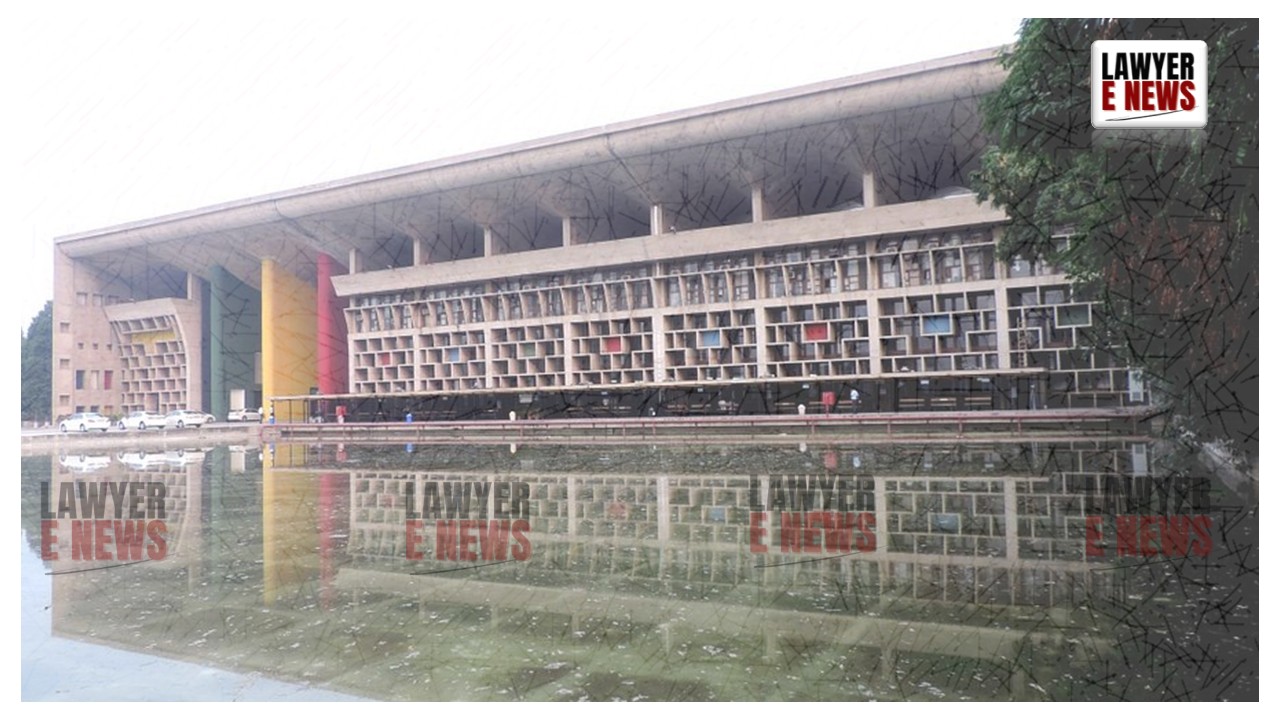-
by sayum
16 February 2026 7:15 AM



“Mere Receipt of Complaint Insufficient—State Bar Council Must Apply Its Mind” – Punjab & Haryana High Court in a significant ruling reinforcing procedural safeguards in disciplinary proceedings against advocates, the Punjab and Haryana High Court has quashed the disciplinary proceedings initiated by the Bar Council of Punjab and Haryana against advocate Naresh Dilawari. The court held that the Bar Council failed to form a "reason to believe" before referring the complaint to the Disciplinary Committee, thereby vitiating the entire process.
A division bench comprising Justice Sureshwar Thakur and Justice Vikas Suri, while allowing the writ petition, observed: “A State Bar Council must form a reasoned belief that an advocate is guilty of professional misconduct before referring a complaint to its Disciplinary Committee. Mere receipt of a complaint is insufficient to initiate proceedings under Section 35(1) of the Advocates Act.”
The writ petition was filed by Naresh Dilawari, challenging the disciplinary action initiated against him by the Bar Council of Punjab and Haryana under Complaint No. DCE/101/2024 (Annexure P-1). The complaint, filed by advocate Yogesh Goel, was referred to the Disciplinary Committee-I (DC-I), and Dilawari was served a notice dated May 30, 2024 (Annexure P-2), requiring his appearance on June 14, 2024.
Dilawari contended that the Bar Council mechanically referred the complaint to the Disciplinary Committee without applying its mind or forming a reasoned belief, as required under Section 35(1) of the Advocates Act, 1961. He argued that this procedural lapse rendered the entire disciplinary action void ab initio.
"Reason to Believe" is a Mandatory Precondition Under Section 35(1)
The court underscored that under Section 35(1) of the Advocates Act, 1961, a State Bar Council cannot mechanically forward complaints to its Disciplinary Committee. Instead, it must first apply its mind to the complaint, form a reasoned belief that the advocate has committed professional or other misconduct, and record this belief before referring the case for disciplinary action.
The court noted that in this case, the Bar Council failed to provide any evidence showing that it had formed such a belief before issuing the impugned notice (Annexure P-2).
"The requirement of forming a 'reason to believe' is not a mere formality—it serves as a safeguard against frivolous and baseless complaints. The failure of the Bar Council to comply with this statutory requirement invalidates the disciplinary proceedings ab initio.”
Disciplinary Action Cannot Be Based on Mechanical Referrals
The court emphasized that the Bar Council acts as a sentinel of professional ethics and must exercise due diligence before initiating disciplinary action. Relying on the Supreme Court’s ruling in Nandlal Khodidas Barot v. Bar Council of Gujarat, (1980) Supp SCC 318, the High Court reiterated: “It is apparent that a State Bar Council not only receives a complaint but is required to apply its mind to find out whether there is any reason to believe that any advocate has been guilty of professional or other misconduct. The Bar Council acts as the sentinel of the professional code of conduct and must ensure procedural fairness.”
The court also cited Bar Council of Maharashtra v. Dabholkar, (1976) 2 SCC 291, which stressed that disciplinary proceedings must not be misused to harass legal professionals.
Failure to Follow Due Process Results in a Jurisdictional Error
Since no "reason to believe" was recorded, the Disciplinary Committee lacked jurisdiction to issue the notice to Dilawari. The court held that:
"The absence of a valid ‘reason to believe’ deprives the Disciplinary Committee of its jurisdiction, rendering all subsequent proceedings null and void.”
Protection Against Frivolous Complaints
The judgment reinforces the importance of procedural safeguards to protect advocates from arbitrary disciplinary action. The court noted that if Bar Councils fail to apply their mind before initiating proceedings, it opens the door to misuse.
“Advocates must be protected from unnecessary and frivolous complaints. The Bar Council must ensure that the disciplinary process is not misused to settle personal scores.”
Disciplinary Proceedings Quashed
In light of the Bar Council's failure to comply with the statutory requirement of forming a ‘reason to believe’, the High Court quashed Complaint No. DCE/101/2024 (Annexure P-1), Notice dated May 30, 2024 (Annexure P-2), and all consequential proceedings arising therefrom.
“Since the Bar Council did not adhere to the mandatory statutory requirement under Section 35(1) of the Advocates Act, the entire disciplinary process is vitiated and must be set aside.”
Final Order of the Court: The writ petition is allowed. The disciplinary proceedings are quashed, and the complaint and notice set aside.
This ruling serves as a landmark precedent in ensuring that State Bar Councils follow due process before initiating disciplinary action against advocates.
Date of Judgment: January 29, 2025
